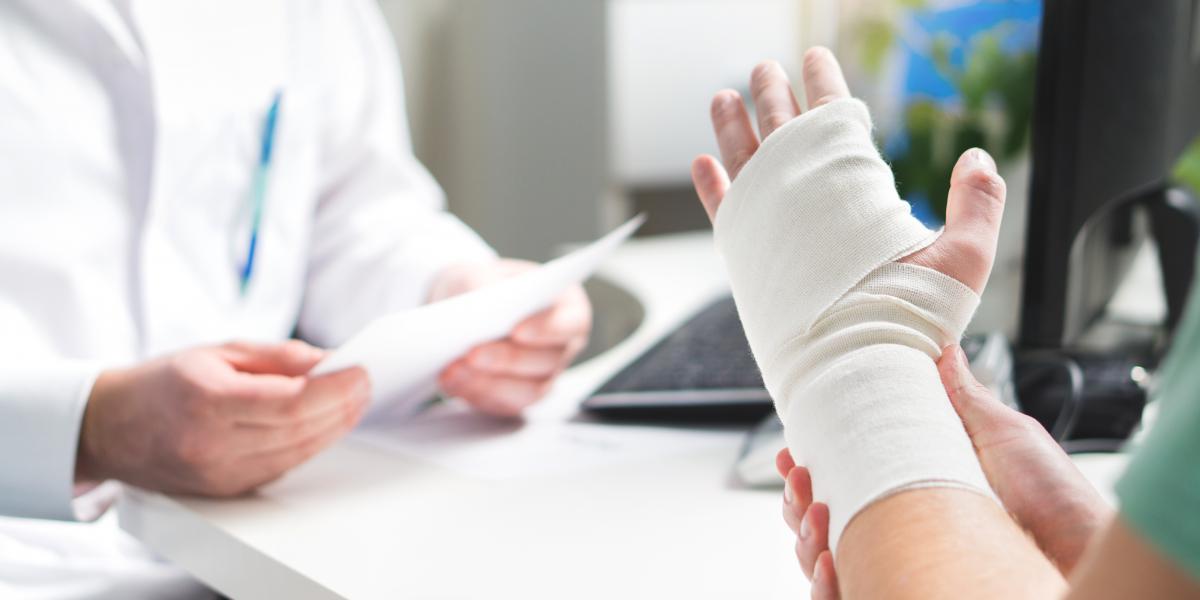
7 dic, 2018
Dealing with unexpected emergencies during the holiday season
During the holidays, getting the care you need when sick or injured can be challenging. Reduced office hours at your primary care provider’s office means many may opt to seek care at an urgent care center or emergency room (ER). However, the time you wait to see the provider can be long. For example, in 2016, more than 36,000 people visited emergency rooms on Thanksgiving Day across the country. Doctors also estimate that their emergency room (ER) visits spike anywhere from five to 15 percent during the holiday season.
These stats alone can make some patients postpone, or avoid altogether, needed care. The best course of action is of course to avoid illness or injury in the first place. Here are some tips to help you stay healthy and injury free during the holiday season:
1. Enjoy but don't overdo: The holidays tend to include more alcohol and more food than usual due to all the parties and socializing, so it should be no surprise that the biggest cause of holiday ER trips has to do with overindulgence. Avoid this pitfall by opting for moderation, especially when it comes to caffeine, alcohol, sugar and fatty foods. Take extra precaution if you have diabetes or a heart condition.
2. Take caution when decorating: According to the Consumer Product Safety Commission (CPSC), 12,000 to 15,000 people end up in the ER every holiday season as a result of accidents related to decorating. To ensure you aren’t included in this number, always remember to secure your ladder on a firm, level surface, always have someone with you, try to get it done during the daytime, and don’t drink and decorate!
3. Think ahead if traveling: If you have a chronic condition or need medical attention regularly, remember to get your prescriptions filled and to check in with your doctors before they (or you) head out on vacation. It's also a good time to resolve any potential concerns about what you can and can't do during the celebrations to come.
But if the unexpected happens, make sure you are prepared with a plan – know what options are available to you. Additionally, it’s important that you can identify how significant an injury or illness is, and where to seek treatment.
Thankfully, many primary care provider’s offices now have evening and weekend hours, so be sure to give them a call first in non-emergency situations. Even if the office is closed, a provider is usually on call. They’ll help you decide if you should wait to receive care when the office opens or if you need to be seen right away. If you don't need emergency care but need to be seen outside of your primary care provider's office hours, you have options:
1. Retail health clinic: These walk-in clinics are staffed with medical professionals and provide help for minor sicknesses and injuries. They are usually open daily, including evenings and weekends. Examples of illness and injuries treated:
• Cough, sore throat, fever
• Flu
• Ear or sinus pain
• Bumps, cuts, scrapes
• Eye swelling, irritation or pain
2. Video chat with a doctor: Talk with a doctor on your smartphone, tablet or computer with Blue Cross & Blue Shield of Rhode Island’s Doctors Online, available 24 hours a day, seven days a week. Search “Drs. Online" in the Apple or Google app store* or visit drs-online.com. Ejemplos de enfermedades y lesiones que se tratan allí:
• Cough, sore throat, fever
• Flu
• Ear or sinus pain
• Bumps, cuts, scrapes
• Eye swelling, irritation or pain
• Nausea, vomiting, diarrhea
• Back pain
• Sprain
• Mild asthma
3. Urgent care center: These centers treat conditions that are serious but not life threatening, and are usually open daily, including evenings and weekends. Ejemplos de enfermedades y lesiones que se tratan allí:
• Cough, sore throat, fever
• Flu
• Ear or sinus pain
• Bumps, cuts, scrapes
• Eye swelling, irritation, or pain
• Nausea, vomiting, diarrhea
• Back pain
• Sprain
• Mild asthma
• Stitches
• Animal bite
• Burns
4. Emergency room: Call 911 or head to the emergency room right away if you feel your life is in serious jeopardy. Entre los síntomas que se evalúan mejor en la sala de emergencias, se incluyen los siguientes:
• Difficulty breathing
• Persistent chest pain
• Altered mental status or confusion, including suicidal thoughts
• Sudden, severe headache
• Deep cuts that require stitches or a large open wound that won’t stop bleeding
• Broken bones or dislocations
It’s important to plan ahead to ensure you and your family stay safe and healthy over the holidays. Do some quick research on local care locations so you know all your options just in case something unexpected happens.
Charlotte Crist, RN, is the managing director of clinical programs at BCBSRI.

